How every child’s worst dentist nightmare drove Kia Pajouhesh to deliver smiles and save a city icon
From Melbourne private school beatings to one of the nation’s richest dentists running the biggest private practice in the country, Kia Pajouhesh’s story is impressive.
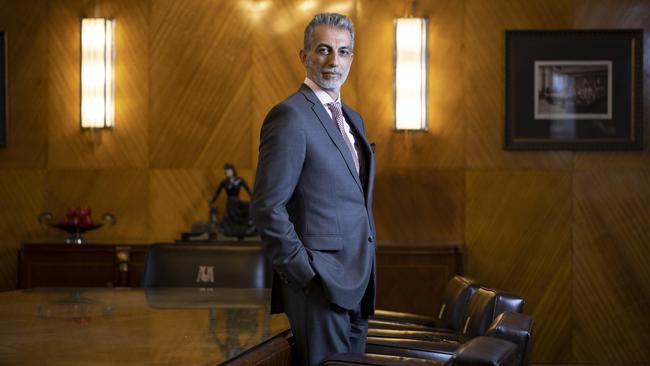
Kia Pajouhesh fondly remembers life in Iran before the 1978 Islamic Revolution.
But growing up in Tehran in the 1970s, without fluoride in the water, left him and millions of other Iranian children vulnerable to tooth decay.
His family moved to the seaside town of Brighton in southern England when he was eight years old and within three years he was afflicted with an inflamed vital molar tooth.
What was meant to be a routine visit to the dentist to fix the problem turned into a life-changing experience of the utmost horror.
“At age 11 I visited the local dentist to be told I need a root canal in my upper first molar,” he now recalls, the terror of that day still clear in his voice and eyes.
“The dentist proceeded to drill into my inflamed vital molar tooth with no anaesthetic while his assistant held me down by lying across my chest, under the instruction of the dentist, as I screamed for what seemed an eternity.
“The dentist perforated my tooth in three locations.
“That singular event made going to the dentist the greatest phobia that I had at the time and have since had through my entire life.”
His mother was in the room and looked on helplessly.
“She was very indecisive as to what she needed to do. Should she step in? Should she speak up? But we are talking about an era where the man in the white gown was literally perceived as a god.”
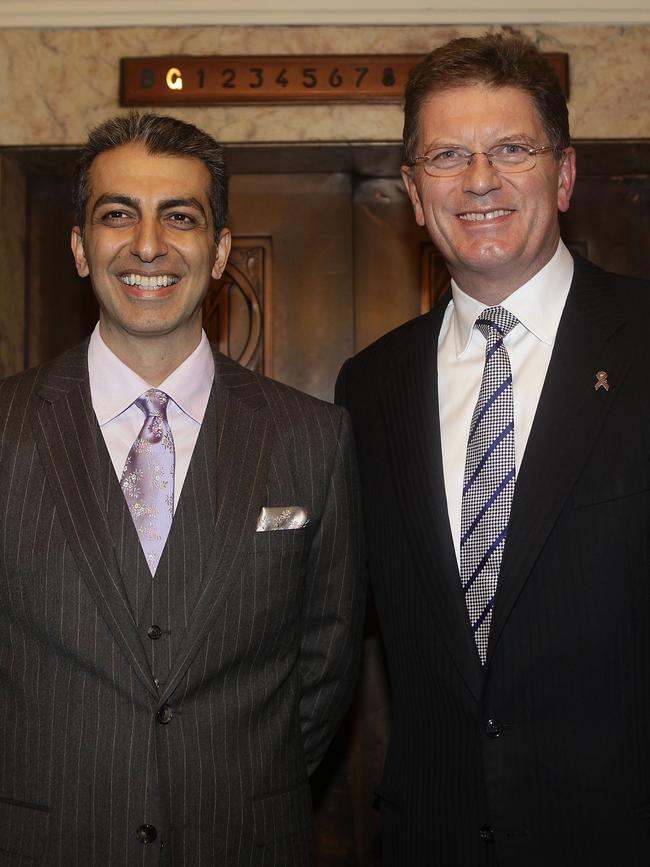
Ironically, within a year or two of the experience Pajouhesh became interested in the profession of dentistry, and followed his beliefs from an early age to confront challenges and weaknesses head on.
After moving to Australia and graduating from the University of Melbourne with honours in science and dentistry at the age of 23, he started his own business in 1993 with a $15,000 overdraft from National Australia Bank.
Today his Smile Solutions is Australia’s largest single-location dental practice.
The now Dr Pajouhesh calls it the “Harrods of dentistry” and it is little wonder given its home is a heritage-listed Melbourne architectural icon – the art deco Manchester Unity (MU) Building on a corner of Collins and Swanston streets.
With its turreted tower, gilt foyer and carved marble, the building was a symbol of Melbourne’s recovery from the Great Depression when it was built in 1932. The rooftop terrace hosted the city’s first tea rooms.
Pajouhesh bought level one of the building in 2003 and renovated it for eight months before opening his practice there in September 2004. He has since renovated four other floors and the tower to house 40 dental suites.
Smile Solutions and its secondary suburban brand, Core Dental, have 350,000 patients, employ 120 clinicians and 25 board-registered specialists.
Smile Solutions started with just eight patients in a nondescript building at the top end of Collins St.
But Pajouhesh long dreamt of basing his practice in a beautiful, heritage-listed location. First he wanted a church, but gave up after a three-year search.
Then one day, he recalls crossing Collins St towards the Melbourne Town Hall when he looked up to the first floor of the MU Building and saw the estate agent’s signs in the windows.
“I remember whispering under my breath, ‘There’s my church’.”
Learning the hard way
Pajouhesh had a difficult introduction to Australia.
When his family moved to Melbourne in 1982, they settled in the working class suburb of Cheltenham in the city’s southeast. His father had a PhD in engineering and his mother was a medical radiographer.
Remarkably, he started at nearby Mentone Grammar in year 9, three years above where he finished his English schooling the previous year.
There he confronted bullying and racism like he had never seen. While Asian heritage students were streamed into a special class at the school, given his English education he was deemed to be Anglo.
He will never forget the day he made fun of a classmate who had dropped a pencil case on the floor.
“He stood up in the middle of history class, stood over the top of me, clenched his fist and punched me,” he recalls.
“We later found out he broke my eye socket. As I was holding my eye, which was literally bruising and swelling in my palms, the history teacher turned around, looked at me and immediately assumed I was the problem.”
When he was sent to the headmaster’s office, Pajouhesh refused to name the protagonist, so he received three lashes of the cane on his backside.
“The only reason I didn’t dob was not out of some male bonded camaraderie, but because I knew that the next punch from that kid would probably have broken my other eye socket,” he says.
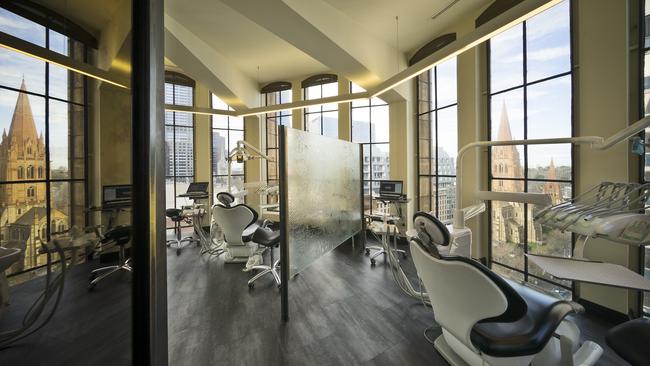
But his tough schooling steeled him for the business world.
When he started Smile Solutions in 1993, the communication between dental firms and their patients was virtually non existent.
“So I built my business model around things like informed consent, provision of multiple options, and listening to the patient’s demands and expectations, rather than telling them what they should have,” he says.
“So I turned the tables in the patient consultation scenario where the first thing I would say to them is ‘What can I do for you? What is it that you need or expect from me?’ That was a new concept in the health industry.”
In a traditionally male-dominated industry, all of his senior managers are female. He says many have worked their way up from being ancillary staff over the decades.
“Humility and gratefulness, I keep repeating those words when I talk to my team, and I feel that these attributes come more naturally to women than to men,” he says.
“Their ability to be able to empathise and show a sense of spiritual maturity towards healthcare is quite strong.
“The fact that they as a cohort and as a group are able to manage the challenges that they all face around issues such as maternity leave, equal opportunity, equal pay and so on is incredible.”
A tourist attraction
Smile Solutions is likely the only dental practice in the world that has public guided tours of its facilities.
Each month 150 tourists are led through the stunningly refurbished MU Building, including its old-world board room adjacent to Pajouhesh’s office, where the plush leather chairs surrounding the grand old table are still adorned with the original, old English Manchester Unity logo.
The table was crafted out of Queensland maple cross-banded with rosewood and is topped with a single sheet of plate-glass that weighs more than 330kg, and was so heavy it had to be lifted in through the ceiling. It has survived all of the building’s refurbishments.
Pajouhesh says he spent millions of dollars on restoring the property to its former glory for the people of Melbourne.
“I’m doing something better for the community as a whole by opening the doors of that building for tourism,” he says.
“I have to pinch myself to actually acknowledge that the spaces we are so privileged and grateful to work in every day are worthy of tourists.”
When Pajouhesh bid at auction for the penthouse and tower of the building in 2006, he came up against a formidable foe – the now late legendary comedian Barry Humphries.
But Pajouhesh made what proved to be the winning bid and later spoke with the famed entertainer, asking why he had not offered more. The answer was vintage Humphries.
“He told me, ‘Kia, that penthouse apartment suits a man who is in between marriages. Unfortunately, on the day of that auction, I was married’.”

Humphries soon became a patient of Smile Solutions whenever he was in Melbourne and a patron of the MU Building.
One evening, Pajouhesh even invited him to dinner in the famous boardroom. Pajouhesh’s mother cooked them a stunning Persian meal.
“I’ve not come across anybody as well informed and educated about the nuances of cultural differences between people, all the way through to infrastructure in Melbourne to do with our buildings or roads,” Pajouhesh says.
“He was singularly the most knowledgeable person I’ve come across about the MU building.
“When you sat and spoke with him, you genuinely felt that you were in the presence of genius. So you can understand how his comical genius was based on sheer intelligence.”
Pajouhesh has long jealously guarded his privacy.
One of the only mentions of Smile Solutions in the mainstream media in recent years came in January 2017 when he launched defamation action against a patient who posted several savagely critical online reviews after claiming he was quoted $1200 for a filling that would take only 45 minutes.
Pajouhesh was never quoted in the story about the case, which he now says involved a gentleman – a lawyer – who he had never met or treated directly.
“He complained at reception about the quote he had been given. As per the policy that we have had for 30 years at Smile Solutions, if a patient comes to reception and they are unhappy with their treatment for any reason at all, they shouldn’t have to pay. So he was told he did not need to pay for his check-up and X-rays,” Pajouhesh says.
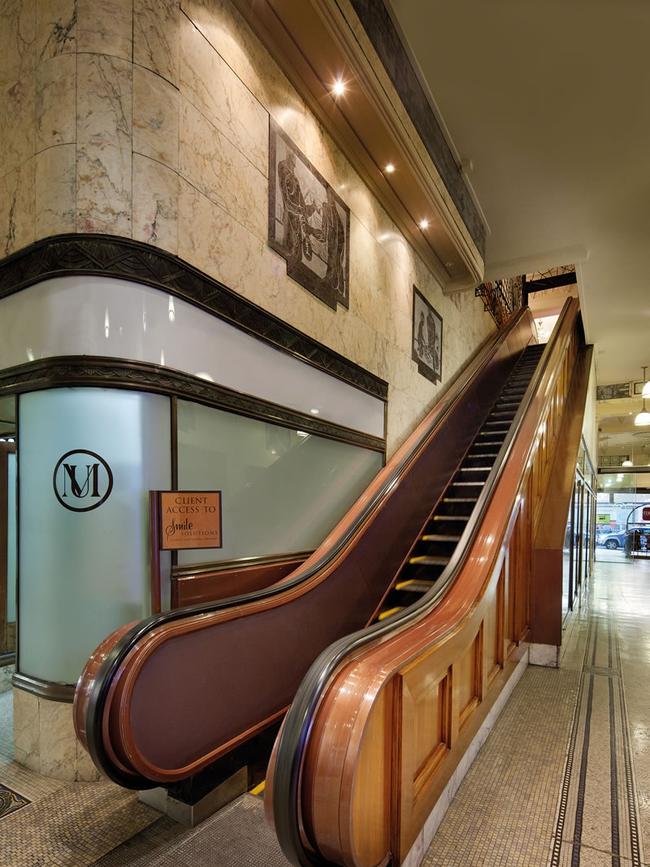
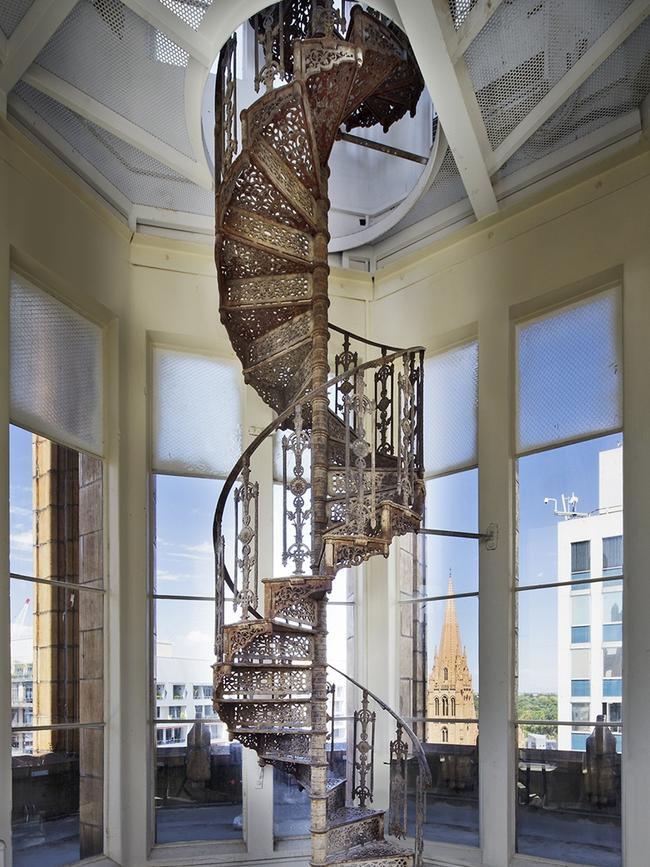
“So he left my practice, never having met me, never having spoken to me, after seeing one of our associate dentists for a check-up and X-rays that he didn’t need to pay for; he left and wrote a series of scathing reviews claiming I was a thief and that I was there to rob him of his money.”
The matter eventually was settled out of court in Pajouhesh’s boardroom. The defendant agreed to pay $14,000 to cover the plaintiff’s legal costs.
“We took it on a payment plan that took him almost two years to pay. I accepted that because at the end of the day, for me that man had acknowledged his failures and his misdemeanour. For me, the fight for fair was over,” he says.
Pajouhesh is now 54 and immensely proud that his son, Kaiden, has just been accepted to study dentistry at La Trobe University. He stresses there is no parental pressure.
His daughter, Mikayla, is currently in year 11 and considering studying commerce at university.
He worries about the current state of the dental profession and posts prominently on his LinkedIn profile, taking aim at The Australian Health Practitioner Regulation Agency and the Dental Board of Australia.
The latter works to ensure that Australia’s dental practitioners are suitably trained, qualified and safe to practise.
“We have a problem that so many invasive procedures are being trivialised on social media,” he says.
“We have a problem that dentists are lying about their credentials and putting positive fake reviews online. We have a problem that unsuspecting patients are being injured.
“When they make a claim to have it rectified, the dentist’s professional indemnity insurance company just says ‘You are going to get nothing back’.
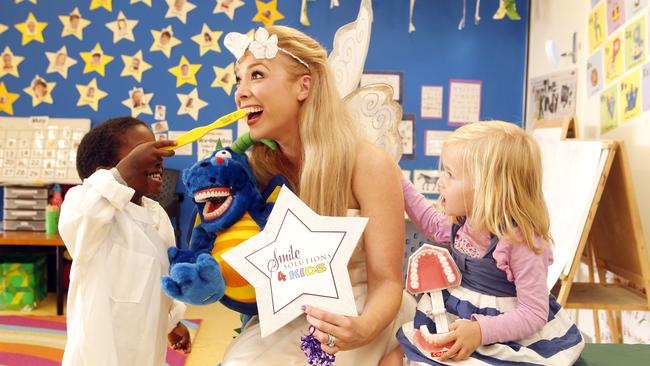
“I’m very vocal about the misdemeanours we are witnessing in my industry right now.”
It is now nearly a decade and a half since Pajouhesh returned as a 40 year old to the building in Brighton, England which holds memories he can never forget.
Today the Victorian, single-fronted brick veneer property is no longer a dentist’s surgery.
Yet when he stood outside on the street on that day, the trauma was still real.
He felt his body temperature rising before being overwhelmed by feelings of anxiety and fear. Eventually, he broke down in tears.
“To this day, pediatric dentistry holds a very special place in my heart,” he now says softly, as tears momentarily well in his eyes once again. The pain of that fateful day four decades ago still runs deep.
“If I hear a child crying at the very other end of my practice, I will get up from my chair and I will go over to see if I can somehow help. I cannot cope with a child crying in a dental chair.”






To join the conversation, please log in. Don't have an account? Register
Join the conversation, you are commenting as Logout